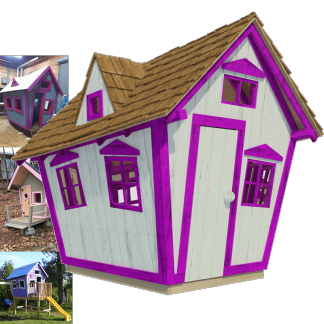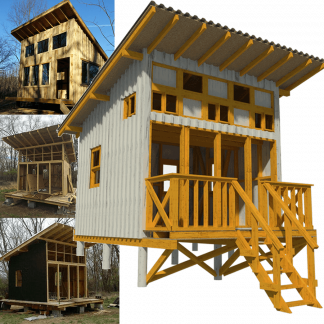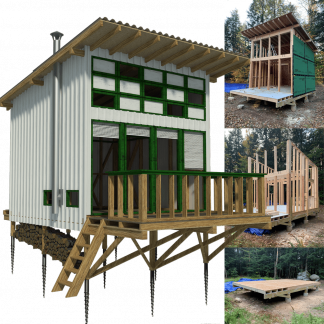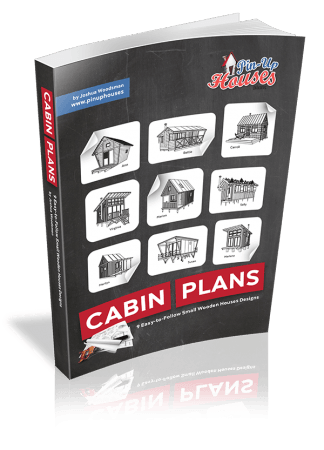
Ever since the Palais de Versailles – built by Louis the XIII as a hunting lodge that subsequently became the first recorded vacation home – holiday rentals have grown in popularity, offering travelers unique accommodation options instead of cookiecutter hotels.
The global vacation rental market was estimated to be worth a cool $82.6 billion in 2022, and on track for a healthy compound annual growth rate (CAGR) of 4.7%. Still, as positive as it is that the vacation rental market continues to grow, so too do security concerns for both hosts and guests; ensuring the safety and security of your vacation rental property is essential to protecting your investment and providing a worry-free experience for your guests. The best marketing, cutting-edge property management software and snazzy decor matters little to the big picture if your vacation property is vulnerable to a host of attacks. Here, we’ll explore a comprehensive set of measures to help you keep your vacation rental safe and sound.
Invest in a Reliable Alarm System
Installing a robust alarm system is one of the most effective ways to secure your vacation rental property; modern alarm systems offer features like motion sensors, door/window sensors, and remote monitoring – a sophisticated arsenal of security tools and features. Opt for a system that can alert you and local authorities in case of a breach – these are excellent at both deterring potential intruders and providing peace of mind. If your rental property sits within a complex, make it your mission to ensure that a top-notch apartment intercom system is in place.
Secure Entry Points
Ensure that all entry points, such as doors and windows, have sturdy locks, and/or consider upgrading to smart locks, which allow you to control access remotely (very flash as well as handy). You can also provide unique access codes to guests, making it easy than ever to manage who enters the property and when; change these codes up after each guest’s stay for maximum security benefits.
Exterior Lighting
Well-lit exteriors can also deter burglars while providing a sense of safety for your guests. Ideally, install motion-activated lighting around the property’s perimeter, particularly at shadowy entryways, dimly-light pathways, and ominously dark parking areas.
Surveillance Cameras

Visible security cameras can act as a powerful deterrent – especially these days, when potential perpetrators know that the footage is likely being beamed up to the cloud for ultimate safe-keeping. While it’s essential to respect your guests’ privacy, you are well within your rights to install cameras in public areas, such as the entrance or parking lot; just be sure to inform guests about their presence in your rental agreement and adhere to local laws regarding surveillance.
Safety Features
Install smoke detectors and carbon monoxide detectors in your vacation rental, and ensure they are in good working condition – also, be sure to check these devices regularly between guest stays – they’re not worth the plastic they’re made from if they aren’t kept in good operational order.
Secure Valuables
Remove (or at least lock away) personal or valuable items, both for your peace of mind and to prevent accidental damage; as a gesture of your commitment to the safety of their possessions, provide guests with a secure lockbox or safe for their own valuables.
Background Checks for Guests
Screen potential guests by requesting identification and conducting background checks – it’s not over-the-top, nosey, or intrusive, it’s business! Platforms like Airbnb offer verification services that can help hosts feel more secure about their guests’ identities; whether you need help or not, never compromise on this step.
Clear House Rules
Establish and communicate clear house rules to guests, including your policies on parties, additional guests, and quiet hours, for example. Enforce these rules consistently to maintain a safe and enjoyable environment for everyone – not every rental will have the same standards, so it’s important to state them clearly to avoid confusion. Their last holiday rental may have been happy to accommodate round the clock parties, so unless you feel the same, put it in writing!
Local Contacts and Emergency Information
Create a guestbook with essential contact numbers and emergency information; include local emergency services, nearby medical facilities, your own contact information, and perhaps nearby, trusted friends or representatives for immediate assistance.
Regular Property Inspections
Schedule regular property inspections to identify maintenance issues, security vulnerabilities, or potential hazards; address any problems promptly to maintain a safe environment for your guests – as the saying goes, ‘prevention is better than cure.’
Insurance
Consider purchasing vacation rental insurance to protect your property from damages and liabilities; speak with your insurance provider to ensure you have adequate coverage for your specific set of circumstances – it’s far better to be safe than sorry. Insurance is a strange product in that it’s something we choose to buy with the express preference that we never need to use it – but, should it become needed, it’s worth its weight in gold!
Guest Communication
Maintain open, polite, responsive communication with your guests, and encourage them to report any security concerns or issues during their stay. Promptly addressing their concerns and making sure they find you approachable will enhance their guest experience.
Security Deposit
Charge a reasonable security deposit to cover potential damages; clearly outline the terms and conditions for its return in your rental agreement.
Neighborhood Watch
Connect with neighbors or, if possible, join a neighborhood watch program; they can be fantastic at keeping a beady eye on your property when you’re not around, as well as help report any suspicious activity.
Emergency Preparedness
Prepare for emergencies by having a first aid kit, fire extinguisher, and emergency escape plan in place, and communicate this information to your guests upon their arrival.
Landscaping and Property Design

Consider landscaping and property design to enhance security; for example, trimming bushes and trees near windows and entryways can eliminate hiding spots that dodgy dodgers could otherwise lurk in. Design your property with natural surveillance in mind, ensuring that windows overlook common areas, for example – it’s surprising how much these factors play into overall security positioning.
Secure Wi-Fi Network
If you provide Wi-Fi access to your guests, secure your network with a strong password – not the name of your cat! Also, limit access to sensitive devices and information to prevent unauthorized use.
Lock Up Amenities
If your vacation rental includes amenities like bikes or kayaks, provide a secure storage area with locks for guests to store these items when not in use to avoid clutter, trip hazards and things getting stolen.
Monitor Reviews
Keep an eye on guest reviews for any mentions of security concerns or suggestions, and use this feedback to continually improve the security of your vacation rental!
Legal Compliance
Stay informed about local laws and regulations regarding vacation rentals and security measures; compliance with these regulations is essential to avoid potential legal issues.
Securing your vacation rental is a multifaceted task that involves a combination of technology, communication, and proactive measures; remember that staying vigilant and maintaining open lines of communication are key to a successful vacation rental business. With these comprehensive measures in place, you can enjoy peace of mind while providing a safe and memorable stay for your guests.








